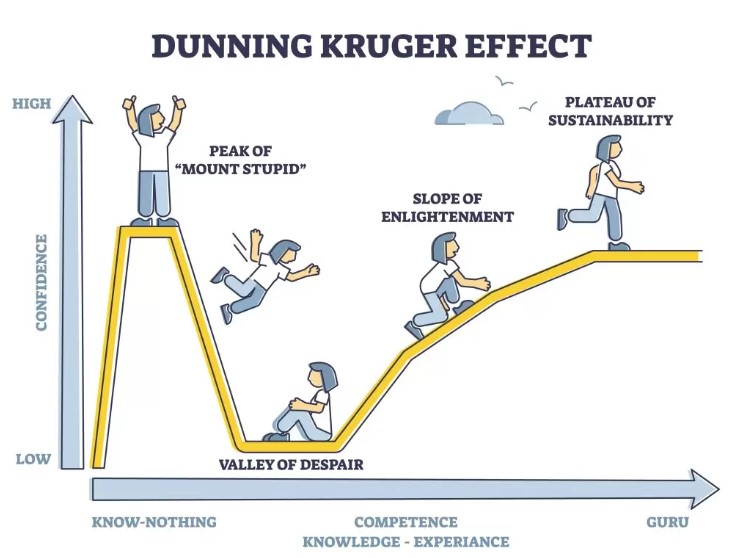The Dunning-Kruger Effect is a cognitive bias that leads people with low ability or expertise in a particular domain to overestimate their competence. Essentially, individuals with limited skills or knowledge in a specific area often believe they are more capable than they truly are. This bias is named after psychologists David Dunning and Justin Kruger, who conducted research on the phenomenon.
Explanations:
The Dunning-Kruger Effect arises from a lack of metacognitive awareness – the ability to accurately assess one’s own performance or abilities. People who are less competent in a domain may lack the expertise to accurately judge their own competence, leading to overconfidence.
Examples:
Unskilled Drivers: In driving, individuals with limited experience may believe they are exceptionally skilled and underestimate the risk of accidents. In reality, novice drivers are more likely to be involved in accidents.
Incompetent Leaders: Individuals who lack leadership skills may think they are excellent leaders, while their actions demonstrate otherwise. They might not recognize their ineffectiveness in managing a team or making decisions.
Amateur Philosophers: People who have read a few books on philosophy may assert their philosophical opinions with unwavering confidence, even though they lack a deep understanding of the subject.
Solutions:
Encourage Self-Reflection: Promote self-awareness and self-reflection. Encourage individuals to critically assess their own abilities and knowledge in various domains.
Gather Feedback: Seek feedback from peers, mentors, or experts in the field. External perspectives can provide a more accurate assessment of your competence.
Invest in Learning: Recognize that true expertise takes time and effort to develop. Invest in learning, practice, and gaining experience in areas of interest.
Humble Approach: Embrace a humble and open-minded approach to your areas of expertise. Understand that there is always more to learn, and no one is infallible.
Addressing the Dunning-Kruger Effect requires a combination of self-awareness, feedback from others, and a willingness to learn and improve. It can help individuals avoid the pitfalls of overestimating their competence in various domains.
